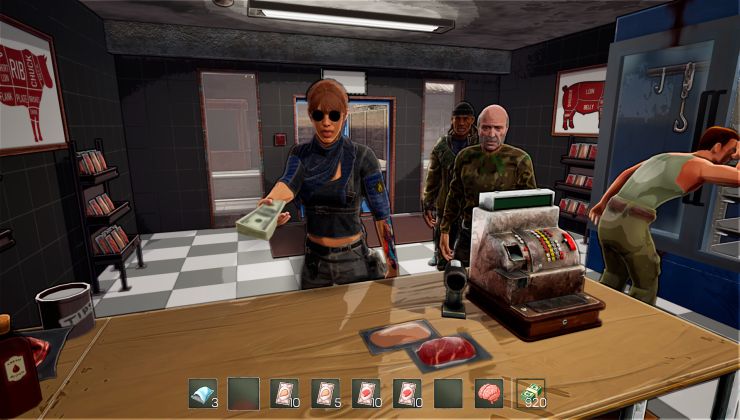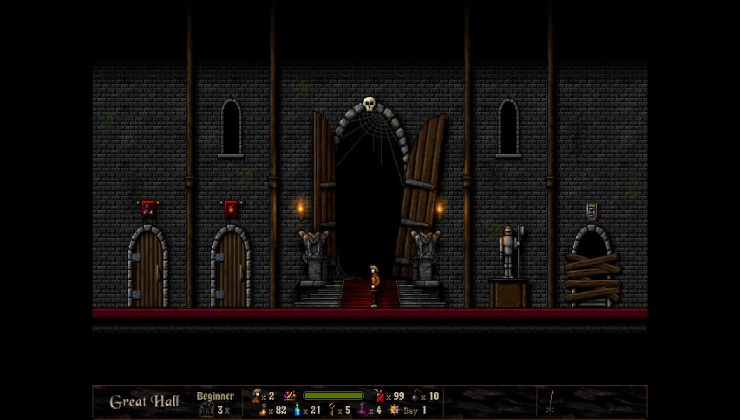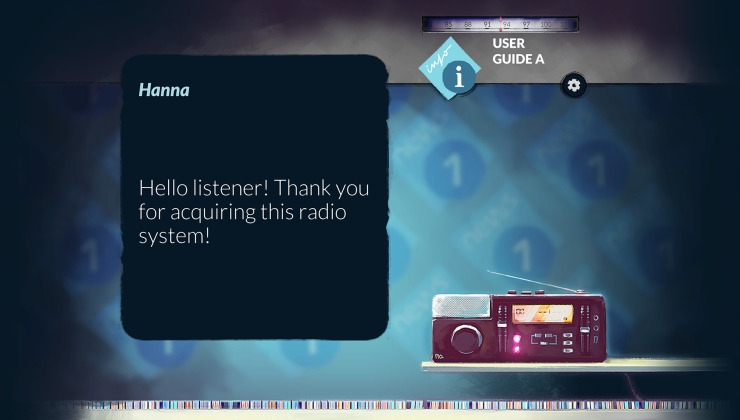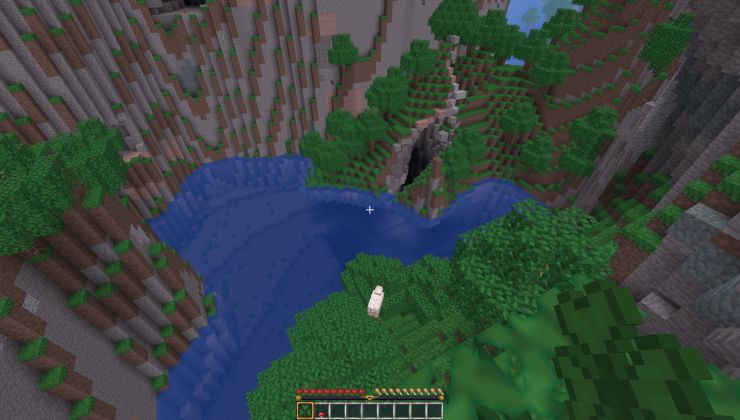Ready for some more upgrades? Today Fedora Linux 40 has now been officially released bringing with it big upgrades with GNOME 46, KDE Plasma 6 and lots more. Plus the usual assortment of upgrades and enhancements to all the core applications.
With this release you're getting Linux kernel 6.8, Mesa 24.0.5, Wayland out of the box for the KDE edition, the inclusion of PyTorch for deep learning, numerous security improvements and so much more across the bump in versions of KDE and GNOME with all the enhancements there like improved HDR support in Plasma, experimental Variable Refresh Rate (VRR) in GNOME and so on.
They also revived the Fedora Atomic Desktops branding which includes Fedora Silverblue, Fedora Kinoite, Fedora Sway Atomic and Fedora Budgie Atomic. So if you fancy a different type of Linux distribution perhaps give those a try that use either ostree or image-based provisioning that the Fedora team say isn't really "immutable" so it's being clearer going forward.
See more in the release announcement. And you can see the overview of changes for Fedora Workstation and Fedora KDE.
You might also want to read the interesting blog post titled "Notifications in 46 and beyond", which goes over the work involved in improving notifications in GNOME thanks to funding from the Sovereign Tech Fund.
Quoting: PyrateYou'll almost certainly be getting your Flatpaks from Flathub. This is the way Flathub works:Quoting: pleasereadthemanualNo official Signal Desktop package. Where do you get it? From the unverified Flatpak? From openSUSE's OBS, which is maintained by a Fedora packager? From the COPR? Do you compile it yourself?So the flatpak is not verified? I never realised that! is this worthy of concern? I don't know how this works, can one like check how the flatpak is built or whatever so one can be sure there were no modifications? What do you use to get Signal then if not the flatpak?
- A user creates a manifest file (which is just a text file) with a bunch of instructions.
- Flathub builds a Flatpak package based on that manifest.
- The Flatpak package appears for download on Flathub's repositories.
Flathub is responsible for building the packages, so it always matches the manifest.* However, the manifest might be malicious. Flathub does manually review all initial Flatpak submissions and permissions changes, so that's some assurance.
Now, about Verification. Take a look at the Signal Flathub page: https://flathub.org/apps/org.signal.Signal
You'll see it says "Unverified". All this really means is that Signal Foundation (the original developer) is not responsible for the manifest or the package. The Flatpak is built by the community, which may or may not be trustworthy. It's a risk you need to take into account. Signal only provides a .deb package officially and nothing else.
Compare this to a "Verified" package, like [Thunderbird](https://flathub.org/apps/org.mozilla.Thunderbird). It's a package by the original developer, so you can trust it as long as you trust the original developer.
*: Mozilla provides the Flatpak package for Firefox, rather than Flathub building it. It's a very unique case.
And now...Signal
I apologize in advance for sending you down the garden path: https://github.com/signalapp/Signal-Desktop/issues/1630
To save you a lot of reading, a trustworthy option might be the Open Build Service RPM package provided by cryptomilk, who is a Fedora Proven Packager and contributor to Signal.
[1]: March 2018, cryptomilk expresses interest in creating an OBS package when Signal signs their git tags and OBS supports GPG sigs: https://github.com/signalapp/Signal-Desktop/issues/1630#issuecomment-373272490
[2]: October 2019, cryptomilk starts working on the OBS package: https://github.com/signalapp/Signal-Desktop/issues/1630#issuecomment-545581829
[3]: April 2020, cryptomilk gets the package working on OBS: https://github.com/signalapp/Signal-Desktop/issues/1630#issuecomment-611564892
[4]: July 2020, cryptomilk moves the OBS package to a new URL: https://github.com/signalapp/Signal-Desktop/issues/1630#issuecomment-664135377
Or maybe you decide "the Flatpak is probably trustworthy enough" and like the idea of auto-updates, so you just use the Flatpak package.
Or you decide that you only trust Signal and just build it from source: https://github.com/signalapp/Signal-Desktop/blob/main/CONTRIBUTING.md#linux
I never managed to settle on a decision. When I come back to Fedora, I might investigate container options like Podman/toolbx...
Quoting: pleasereadthemanuala trustworthy option might be the Open Build Service RPM package provided by cryptomilk, who is a Fedora Proven Packager and contributor to Signal.Thanks for the super thorough response! I think I'll settle for the cryptomilk RPM package, and this is the first time I hear about this Open Build Service, sounds really cool, I'm glad OpenSUSE is also RPM which is something I just found out about now too, many lessons learned, thanks again.
Quoting: legluondunetWhat distribution you will advice for gaming?I am currently setting up Mint 21.3 XFCE for gaming. I have been using Mint as my daily driver since version 13 over ten years ago.
From my experience, a good Linux distribution for gaming will be a distribution that will provide all packages needed for gaming:
- Proprietary and open source graphic drivers
- recent kernel
- wifi/bluetooth drivers
- wine/wine-staging
- 32 and 64 bits libraries
- Steam
- all emulators
- flatpak
- Lutris, Heroic...
- Gamescope, Mangohud
which manages dependencies efficiently: for example, if I install Lutris, also install wine, the 32 and 64 bit libraries, install the sdl libraries etc... So that the user subsequently does not have any messages error linked to a missing library when launching his games. And packages should be updated regularly.
At the moment I have successfully tested the following distributions for the game:
- Manjaro (ARCH)
- openSUSE Tumbleweed
This two distributions are rolling release so you always use recent and stable packages.
As an Ubuntu user for many years, I would not recommend this Linux distribution for gaming, I have experienced a lot of problems with unsatisfied dependencies, app packages not available, issues unresolved and its management of PPAs is complicated and degrades its stability.
Then I often encountered difficulties when updating from one version to another.
What about Fedora? I would be interested in your feedback.
For Linux gaming, I have tried Linux Mint (fixed release cycle), Manjaro (rolling release), and Pop!_OS (semi-rolling). With fixed releases, I prefer to do clean installs but having to reinstall all my games with each fixed release update was becoming an annoyance. Rolling releases address that concern but being bleeding edge isn't everything it is cracked up to be! The sacrifice is stability.
Honestly, Manjaro ran like crap on my legacy laptop with very poor support for my laptop's legacy Nvidia GPU. Pop!_OS does a far superior job overall but the Gnome UI takes a lot of getting used to and then there's the Pop!_Shop ... Mint's Software Manager is just so much better! I would still recommend Pop!_OS as excellent gaming distribution, however.
With the new Upgrade feature that Mint has introduced, I feel that my primary issue with fixed releases is being addressed. So I thought I'd give Mint another try, this time with the XFCE edition. Yes, the packages are not as up-to-date as in a rolling release. For the ones that matter to me, this can be gotten around via PPAs, Flatpaks, AppImages or binaries. If it requires building/compiling, I just don't bother with it. So far, the gaming experience hasn't been much different than in Pop!_OS, to be honest. I haven't yet encountered the stability issues in Ubuntu that you mentioned.
Quoting: CaldathrasI prefer to do clean installs but having to reinstall all my games with each fixed release update was becoming an annoyance.Keep your /home directory in a different partition or disk.
Then when you reinstall the OS all your files will be preserved.
Then just install Steam and point it to the Steam folder.
Quoting: PhlebiacThat's right, I forgot it used to be called that. lolQuoting: Linux_RocksI remember when Fedora 3 came out.You mean Fedora *Core* 3. ;-) I remember when the rumors were swirling about "Red Hat 9" being the last version.
Quoting: pleasereadthemanualThis is really a program that should be kept up-to-date throughout the Fedora release rather than pinned to a certain version.Dunno makes the decision on that (maybe it just depends on the package maintainer?), but it's probably seen as much less of a priority than things like the kernel, browser, etc. Obviously, amount of (volunteer?) manpower has to be a factor.
Quoting: pleasereadthemanualAudacity 4.0 will be Qt-basedAs I recall, VLC made the same wxWidgets -> Qt transition, albeit quite a while ago now. Audacity might be one of the last high-profile projects using that GUI toolkit? I see it's still under active development, though.











 How to setup OpenMW for modern Morrowind on Linux / SteamOS and Steam Deck
How to setup OpenMW for modern Morrowind on Linux / SteamOS and Steam Deck How to install Hollow Knight: Silksong mods on Linux, SteamOS and Steam Deck
How to install Hollow Knight: Silksong mods on Linux, SteamOS and Steam Deck